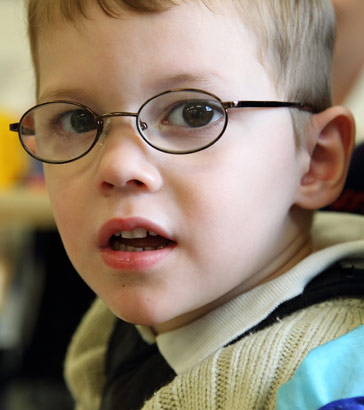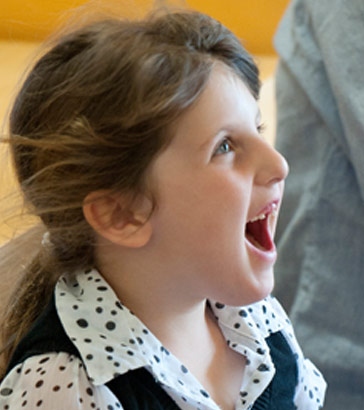- structured conversations

Achievement for All (AfA) was
a Department for Education project trialled in a small selection of primary
and secondary schools aimed at improving engagement and achievement of children
with special educational needs through work with them and their families.
One of the most successful aspects of this was the structured conversations
with parents.
Below are links to the evaluative report of the AfA project and a training handbook
which provides more information on how to
carry out structured conversations with your families.
The structured conversations give you a wider picture of each child and
actually some of the children were very active at home and doing a whole
variety of things. One child in particular, she's a really skilled musician
and we didn't know that...and actually found out quite a lot about individual
children.
A school
Schools and parents alike consider structured conversations with parents
to be the outstanding success story of the AfA project so far:
- The conversations are providing a more holistic view of pupils and have led to a culture shift in parental engagement.
- Conversations have been effective in building a genuine partnership between home and school for pupils with SEND.
- Parents feel more included in the process of their children's education, more empowered, and have sensed a change in the dynamic of their interactions with school staff.

Although there have been a small but significant minority of 'hard to reach'
parents, schools have expressed determination to engage them by extending
or adapting arrangements - e.g. home visits, evening or weekend meetings,
putting on transportation, using other parents as advocates.
Structured conversations have helped parents understand their child's difficulties
at school and have been used to equip parents to help their child with school
work at home. There have been changes in the relationship between pupils
and their families with school staff.
Here a father talks about his issue with his daughter's school, his own
negative experience of school as a child, and how meeting with a teacher
has helped him significantly.

Following the Structured Conversation Handbook,
carry out a structured conversation with a family member of a child or young person at your school/organisation, completing the record and action plan (p.35).
Afterwards, using handout six on page 37 of the Handbook, go through the reflective points and self-assess your contribution to the conversation.